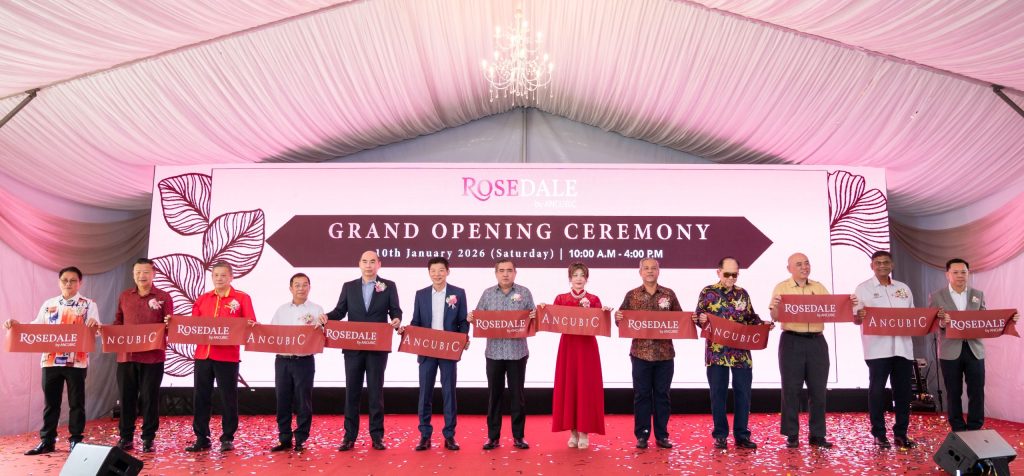Contributed by property valuer Mary Lau heartofproperty@gmail.com
House rules are necessary unless you are living alone. In a strata title property such as a condominium, residents are governed by the house rules and new ones made at the annual general meeting (AGM).
How do these rules come about? The signing of the sale and purchase agreement comes with the deed of mutual covenants (DMC) which contains the provisions of what is permissible for one’s parcel and the common areas.
There should also be a separate handbook containing the house rules which are essentially taken from the DMC. In one of my condos in Kuala Lumpur, the chairman of the first AGM, who was the manager of the property management company, recommended the house rules for adoption so that the use, maintenance and management of the common property can be properly regulated.
It was at this AGM that the JMB was formed. The JMB needs to be established not later than twelve months from the date of delivery of vacant possession (Strata Management Act (SMA) 2013, Sec 17). Here lies the problem. There are more than 250 provisions in our house rules handbook. It would not be a surprise if voters were not familiar with all those rules and the implication of voting all of them en-bloc for adoption.
Although these are standard rules, not all are practical depending on the type of building. A few of these rules would later haunt us when they were carried out by the management.
After the Strata Management Regulations (SMR) came into force in 2015, the provisions in new DMC should follow its By-Laws which govern the maintenance and management of strata title properties.
Additional rules can be made at the AGM, but the statutory By-Laws cannot be removed or changed. The SMR 2015 is under the Strata Management Act 2013, and they apply from the time of management by the developer. The SMA was gazetted in 2013 but came into force only in 2015. This Act applies only to Peninsula Malaysia and the Federal Territory of Labuan.
House rules also need to be consistent with the ones made by the local authorities for respective areas. For example, Dewan Bandaraya Kuala Lumpur (DBKL) allows small dogs to be kept in high rise buildings. The SMR allows pets where they do not pose a nuisance and if they do not contravene any written law or rules of the relevant state or local authority (SMR Reg 14).
If you are under DBKL, make sure that your dog is under the breed of small dogs allowed. You can keep your dog unless it causes annoyance, nuisance or is a danger. The old laundry rule where hung clothes are allowed subject to view has been replaced by SMR Reg 15. Under the new rule, the management can approve a designated area for clothes drying, and there is no requirement on the view criteria. There is no express prohibition in the SMR on the use of removable clothes drying racks. If your management says they are not allowed, it will not hold unless they are passed at the AGM.
Another area worth noting in the SMR 2015 is the regulation on children’s play which states that owners ensure children under their charge when playing on the common property, do not cause any harm to themselves or damage to common property or become a nuisance to other (SMR 2015 Reg 24).
Although it does not expressly state that the management can impose restrictions on children playing, it does allow them to impose a fine for any breach of rules (SMR Reg 7(1)). In our condo, there is a tendency to restrict unwanted children’s activities, where they are not expressly provided for, under a “No Horse Play” provision.
This has caused unhappiness amongst some residents who do not agree with the management’s interpretation of “Horse Play”. Recently, there have been improvements where our management used their discretion to end a long dispute on the use of floaties. This is a welcome change.
To add, remove, change a house rule or propose a resolution such as a major upgrade of facilities, at least ¾ votes from the number of voters present during the AGM is required. These are known as special resolutions.
If there are a hundred voters present, there must be at least 75 votes. It is important to understand what you are voting for. Proposed rules and resolutions from management need to be supported by reasons that make sense, for the good of the community and not just benefit a small group of residents. Once you vote a rule through, it is not easy to change it as 3/4 votes are needed.
On the other hand, ordinary resolutions need majority votes only. For e.g. Out of 100 voters, if more members voted for it than those who oppose, the motion will be passed. The number does not need to be more than half of the voters present.
If you are uncertain if a resolution or motion would require ¾ or majority votes, please ask your management or the Commissioners of Building (COB) to confirm in writing so that there are no disputes during the AGM.
Usually voting at the AGM is by a show of hands unless a poll is demanded by a proprietor or his proxy (SMA 2013, Second Schedule, Sec 17). At the AGM of my condo last year, it was by show of hands, but there were influencers during the voting. Two people who supported the management’s resolutions stood up and raise their cards to encourage voters to follow their choices.
Even I voted with them on one resolution when initially I thought to vote against it. It was a very long AGM, and I wanted to get it out of the way. I think this practice is not right and the chairperson and property managing agent should not have allowed it. If you have this situation, you could demand a poll where no one can see anyone’s voting decisions other than those doing the counting.
About the Contributor
Mary Lau graduated from the University of Reading, England, with a BSc Land Management (Valuation Specialisation) in 1991. In 2002, she was appointed High Court Assessor in Sarawak for compulsory acquisition and compensation cases and sat on the bench with the judge. She began her training with CH Williams and later held senior positions in valuation firms such as Henry Butcher, City Valuers and was a Director at Hasmi and Associates in 1999. She began her own setups in real estate investment and other ventures by 2007. She is a licenced valuer with the Board of Valuers in Malaysia.
Disclaimer
All data and information provided on this site are for informational purposes only. StarProperty.my makes no representations as to the accuracy, correctness, completeness, currentness, suitability, or validity of any information on this site and will not be liable for any errors, omissions, or delays in this information or any losses, injuries, or damages arising from its display or use. The information is provided on an as-is basis. Users are encouraged to seek professional advice before relying on any data and/or information provided on this site.
Read more Surplus funds: Unneeded monies in the maintenance account of strata title buildings













































